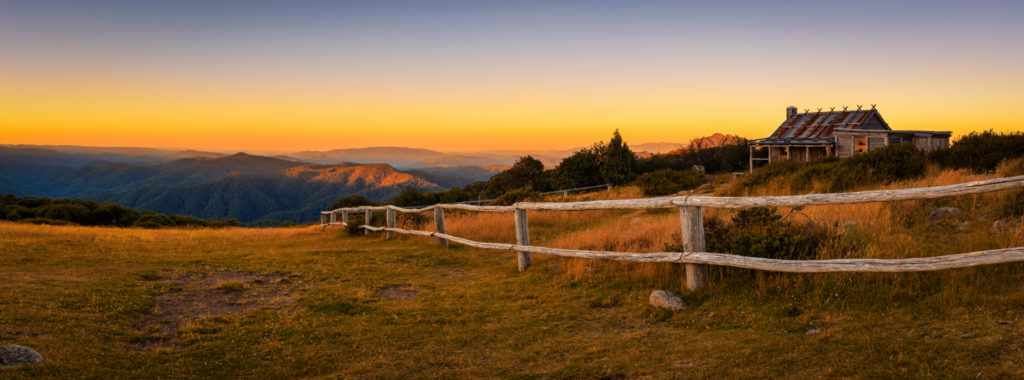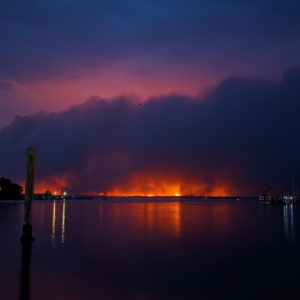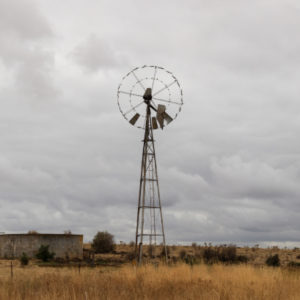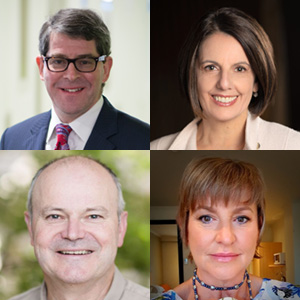Our Resilient Future – Water, Agriculture & Biodiversity

 Enormous changes and transitions are already upon us, and we find ourselves unprepared. This summer’s devastating bushfires and the unprecedented disruption to industries and the business of government here in Victoria during the COVID-19 pandemic have given us a disquieting insight to the sustained uncertainty we’ll be facing under a rapidly changing climate in the decades to come. Under these new conditions, referring to what happened in the past will be unhelpful in predicting the future. One thing is clear: policy, operational, regulatory, investment, management and other decisions will be made under increasingly ambiguous conditions, and integration will be needed across all sectors and levels of our society to set us on a preferred climate path and prepare us for the outcomes we can no longer avoid.
Enormous changes and transitions are already upon us, and we find ourselves unprepared. This summer’s devastating bushfires and the unprecedented disruption to industries and the business of government here in Victoria during the COVID-19 pandemic have given us a disquieting insight to the sustained uncertainty we’ll be facing under a rapidly changing climate in the decades to come. Under these new conditions, referring to what happened in the past will be unhelpful in predicting the future. One thing is clear: policy, operational, regulatory, investment, management and other decisions will be made under increasingly ambiguous conditions, and integration will be needed across all sectors and levels of our society to set us on a preferred climate path and prepare us for the outcomes we can no longer avoid.
 The scale of environmental, economic and cultural transformation required is immense; a seriously intimidating scope of change for planners and policy makers to even approach, let alone implement. Yet short-term, incremental changes can only help us to “cope” (until we can’t), rather than flourish. How do we enable our communities and industries to transform? How do we build agency for regional communities to drive a self-determining transformation over these long time-scales when the state-based decision-making and economic reality is itself so changeable?
The scale of environmental, economic and cultural transformation required is immense; a seriously intimidating scope of change for planners and policy makers to even approach, let alone implement. Yet short-term, incremental changes can only help us to “cope” (until we can’t), rather than flourish. How do we enable our communities and industries to transform? How do we build agency for regional communities to drive a self-determining transformation over these long time-scales when the state-based decision-making and economic reality is itself so changeable?
It seems impossible, but there are success stories we can learn and build from. We propose that we can’t plan for an uncertain future if we’re not prepared to take a systems perspective and focus on resilience. Join us for a series of six-minute presentations across the disciplines that consider the formation of localised resilience strategies for regional Victoria, drawing on the experience and unique challenges of the Goulburn Murray region as a case study. We will look at the challenges and changes ahead for the agricultural sector, the persistence and survival of our biodiversity, and the interactions of these in a near future projected to feature less water from annual rainfall across our state, with related drying conditions, heat waves, extended fire seasons and the increasing likelihood of a rolling, resource intensive emergency management campaign that will reduce our society’s capacity to be proactive.
Presentations:

 A Place-Based Approach: The Goulburn-Murray Resilience Strategy
A Place-Based Approach: The Goulburn-Murray Resilience Strategy
David McKenzie, Chair, Goulburn Regional Partnership
Claire Flanagan-Smith, Principal, Community & Strategy, RM Consulting Group
 Climate Change & Systems Transformation
Climate Change & Systems Transformation
Associate Professor Lauren Rickards, Centre for Urban Research, RMIT University
 Preparing for Biodiversity Decision Making
Preparing for Biodiversity Decision Making
Professor Brendan Wintle, School of Biosciences, The University of Melbourne
Agricultural Transitions
Professor Richard Eckard, Director of Primary Industries Climate Challenges Centre, The University of Melbourne
 Preparing for the Transition of the Water Sector
Preparing for the Transition of the Water Sector
Dr Briony Rogers, Director of MSDI Water, Monash Sustainable Development Institute
Building Community Agency
Professor Sarah Bekessy, Centre for Urban Research, RMIT University


 Chaired by Mike Flattley (CEO, RSV) and Dr Anthony Boxshall (Principal, Science into Action), we will be joined by some of our speakers during the meeting to further discuss their work and potential for application in service of transformational initiatives in the State of Victoria, while seeking input from our audience on the priority actions we need to take to enable our society to successfully adapt in the years to come.
Chaired by Mike Flattley (CEO, RSV) and Dr Anthony Boxshall (Principal, Science into Action), we will be joined by some of our speakers during the meeting to further discuss their work and potential for application in service of transformational initiatives in the State of Victoria, while seeking input from our audience on the priority actions we need to take to enable our society to successfully adapt in the years to come.
 A part of the RSV’s 2020 program for National Science Week.
A part of the RSV’s 2020 program for National Science Week.
In light of COVID-19 restrictions, this meeting will be conducted online as a Zoom webinar, with presentations pre-filmed and speakers answering questions from RSV members and guests in the webinar (invitations to register are sent via email and also listed on the Society’s membership page). The webinar will be livestreamed via the Society’s Facebook site – please tune in at the allotted time to follow the proceedings and add your questions and comments.










